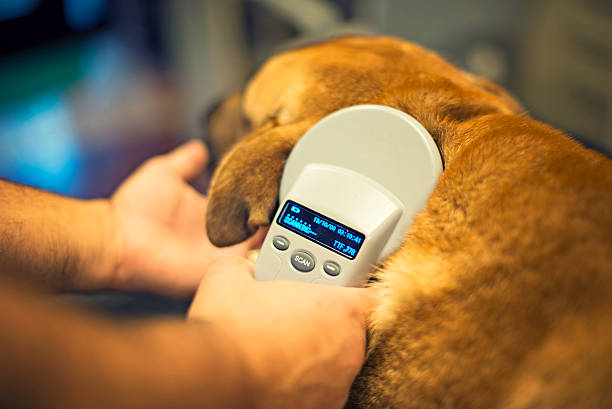Dogs have a wide range of emotions and have developed the skill to express these feelings to humans through facial expressions, bodily signs, noises, and even scents. Consider a scenario in which you pet your dog and he sniffs or begins to whimper; this could suggest that he is experiencing sadness or even depression due to separation anxiety brought on by his owner often leaving him unattended at home without adequate attention or engagement.
He might also be sad because he is missing his favourite friends that live across town. If your dog only cries at night, it could simply be loneliness which can often lead to other behaviours such as urinating in the house out of anxiety rather than lack of bladder control.
If you suspect that your dog has some form of emotional distress, then it would be best for you to schedule an appointment as soon as possible with your veterinarian. Signs of depression and loneliness can quickly escalate to more severe actions such as self-mutilation, excessive grooming, and even aggression.


Depression
If your pet is often sad or depressed, then this might be a sign that he is lonely, needs human contact, or maybe in pain.
Anxiety
If your pooch is anxious, then he may have separation anxiety, fearfulness, or even an under-stimulated brain.
Pain
Since dogs are masters at masking their pains, this can sometimes be very difficult to detect with no visible signs of physical injury.


Illness
Any illness can trigger depression, anxiety, or even excessive barking.
Boredom
If your dog is alone all day with no human contact, then this lack of stimulation can also lead to behavioural problems.
Loneliness
This may be the most common reason for extended periods of crying in pets who are left alone for too long.
Dog-Dog Aggression
If your dog is aggressive with other dogs, then this might trigger excessive barking or even biting.


Dog-Owner Aggression
In some cases, especially if the pet has been abused, he may direct his aggression at you when you come home from work or if he is startled or agitated.
Territorial
When dogs become territorial, then they may exhibit barking, drooling, growling, and even biting of strangers who enter their territory.
Separation Anxiety
This occurs when your dog becomes highly anxious if he is left alone for too long without proper exercise, which can lead to excessive barking, biting, urinating in the house, digging holes in the yard, chewing up furniture, or even household objects.


What to Expect When Your Dog is Crying
He might be lonely, missing friends across town, or he might need more attention and exercise. If he only cries at night, his loneliness might lead to other behaviours like chewing on shoes or barking incessantly at nothing in particular. It’s always essential for pet owners to pay close attention to his body language and the reasons behind why he is crying so you can better take steps to alleviate his sadness.
How to Help a Sad or Lonely Dog
It is vital to make sure your dog gets enough attention. Dogs are pack animals which means they need to feel like they are a part of something. Providing them with toys walks, and playtime will show them that they are loved. Dogs need to be let out once in a while to do their business outside. It would help if you also took your dog for a car ride now and then so that he doesn’t feel left out.
Your dog might also be lonely if he spends hours sleeping or lying around. You should play with him at least once a day for about 30 minutes to take his mind off of things. If you cannot give your dog the necessary attention, it is best to find another person to adopt him and provide that care or consider re-homing him.
If the crying continues after trying some of these things, it is best to take your dog to the vet. Sometimes all he needs is a check-up or new medication. There are even pheromone sprays that you can get for dogs that help with separation anxiety. Make sure to speak with your vet about what is best for treating your dog’s sadness.
Remember that if you notice any changes in behaviour with your dog, it is essential to take him to the vet as soon as possible. He may be sick and need treatment or experiencing pain, so always keep an eye out for any abnormal activity and be sure to ask your vet about it.


What to Do if Your Dog’s Sadness Leads to Bad Behavior
If your dog becomes overly sad, he might start acting out in other ways, such as chewing on furniture or urinating in the house. If you notice any of these things occurring, it is best to immediately see a professional help stop or subdue his sadness.
A professional will usually give your dog safe medications that will reduce his level of anxiety and depression, which will almost always lead to good behaviour. It is also possible to train your dog at home using simple techniques like positive reinforcement, but you mustn’t scold him because this can worsen the situation. To prepare your pooch, you should get a trainer or check out books at the library on positive reinforcement training.
You will want to reward him when he does something good and ignore him when he acts out. If you cannot get professional help for your dog’s sadness, then it might be best to re-home him.
It is important to note that not every dog will have bad behaviour because of sadness, but it can happen. Trainers can help this problem quickly, so you do not have to worry if your dog starts acting up because he is depressed.


The Importance of Exercise for Your Pup’s Mental Health and Behavior
If your dog is not getting enough exercise, then this may also make him sad as lack of physical activity has been linked to depression. This is why it’s so crucial for your dog to get a good walk every day, to be able to explore and sniff around. If you can’t do that daily, try splitting it into two smaller sessions or play his favourite games or have a training session instead since those activities are just as beneficial!
If your dog is too conservative with his energy, he will develop behavioural problems like digging and chewing on furniture. Start by playing with him every day for at least 30 minutes. Increase this time to an hour if you can. You should also take him on walks every day for about 15-30 minutes; this will tire your dog out and give him a break from his confinement indoors.


Dogs Need Time to Socialize with Both Humans and Other Dogs
Did you know that lack of human affection can lead to depression in dogs? It’s true! If your dog is not getting enough love and affection from you, he will begin to feel isolated, which makes him feel lonely. The same applies to spending too much time alone without any playtime sessions with other dogs. This is why it’s so important to spend time with your dog and cuddle, give him some treats or play a game of tug-of-war.
Not Being Able to Explore Their Surroundings Can be Very Discouraging for Pups
Dogs love sniffing around and exploring the new, unknown scents around them. They can’t stop exploring, which is why it’s so important to take them for a good walk every day to give them the physical and mental stimulation they need.


How Can I Tell if My Pet is Depressed or Anxious
If you have an older dog experiencing more severe forms of depression, then some natural remedies may help reduce his feelings of loneliness and anxiety. If your pup has a particular toy that provides him with great joy and comfort, such as a stuffed squirrel toy, then you can place this in his bed at night while you are away. This could also help with separation anxiety which is often when your dog is left alone for too long.
Some owners have found that adding essential oils to their pet’s food may provide some relief from depression and loneliness, including lavender and chamomile oils. If your pup has a favourite blanket or stuffed animal, this can also provide him with some comfort until you get back, which can help ease his loneliness and anxiety. You may want to perform additional training, such as crate training if your dog becomes anxious when left alone for too long without human contact.
Conclusion
If you own a beloved pet who has been whining and crying, then please take him to see your local veterinarian to determine what the problem may be. If the reason is due to loneliness or boredom, then there are some steps that you can take to help ease his emotional state, such as providing your dog with more significant amounts of attention and exercise.


